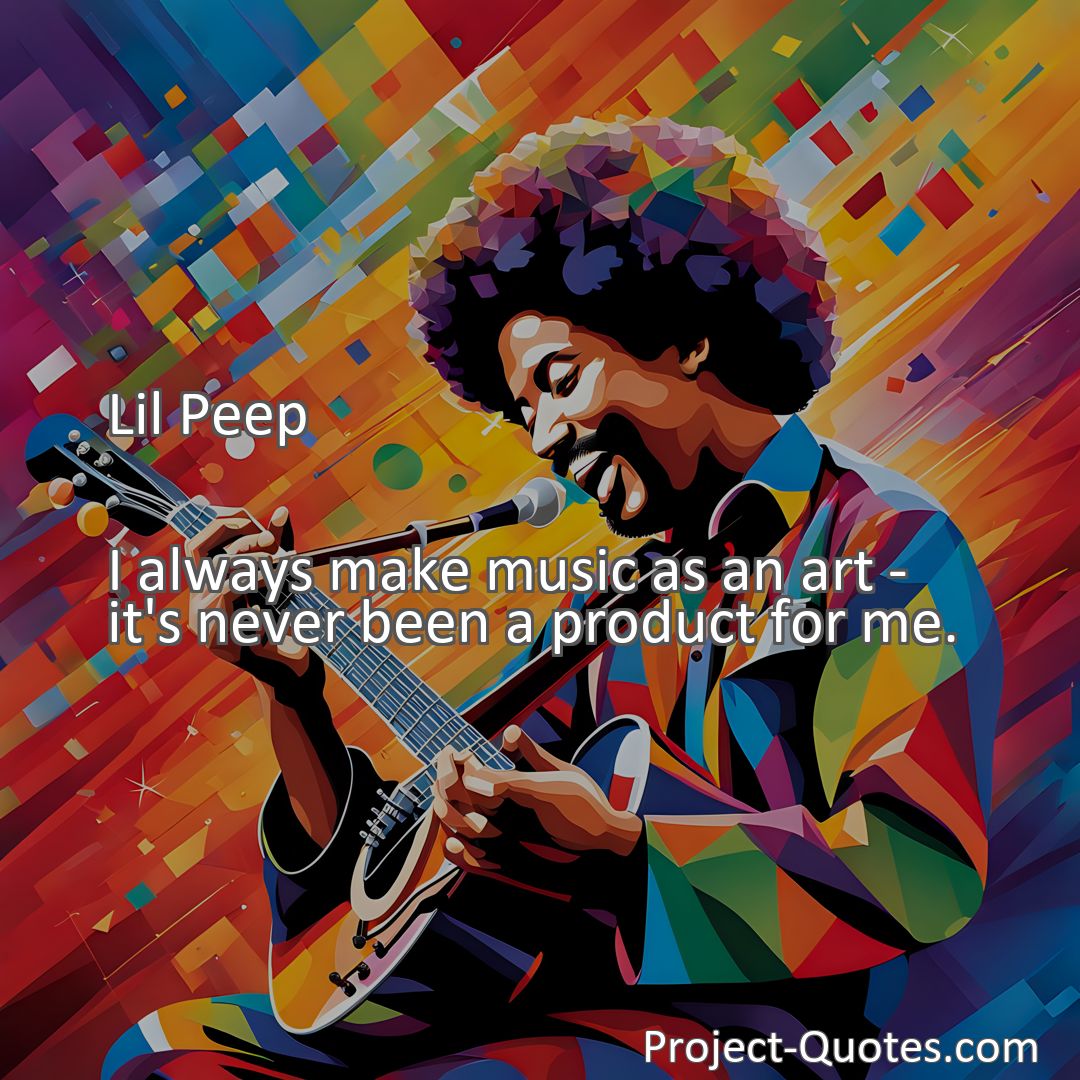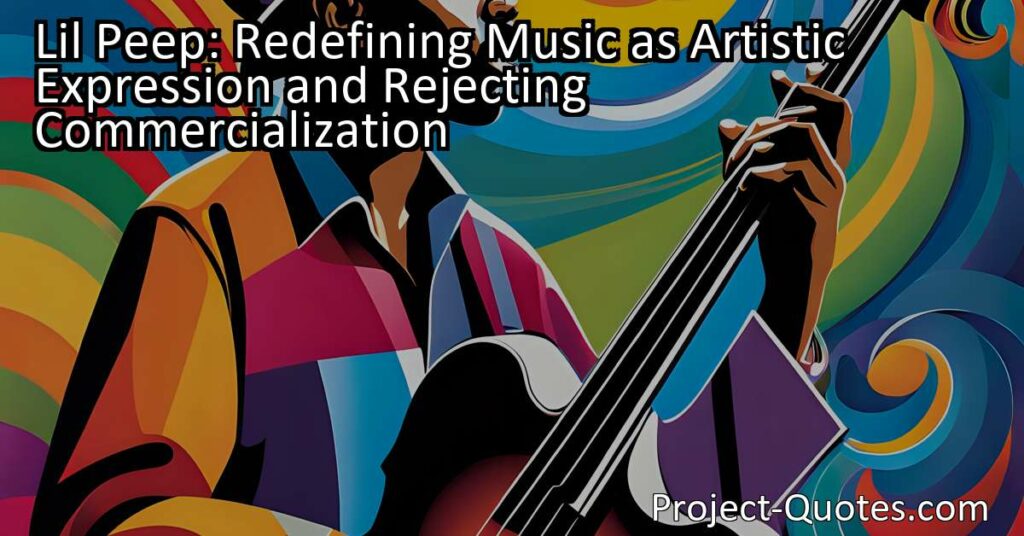I always make music as an art – it’s never been a product for me.
Lil Peep
Lil Peep: Redefining Music as Artistic Expression and Rejecting Commercialization Lil Peep, a talented artist whose real name was Gustav Elijah Åhr, challenged the music industry by prioritizing music as an art form rather than a commercial product. This essay explores Lil Peep’s authentic approach to music, his impact on the emo rap movement, and how his emotional and vulnerable lyrics connected with a generation searching for understanding and acceptance. Through his refusal to conform and his commitment to self-expression, Lil Peep left a lasting legacy as an iconic artist.
Table of Contents
Meaning of Quote – I always make music as an art – it’s never been a product for me.
Lil Peep: Music as an Expression of Artistic Identity
Introduction:
Lil Peep, the talented artist whose real name was Gustav Elijah Åhr, left an indelible mark on the music industry with his unique and introspective style. As an influential figure in the emo rap and alternative hip-hop genres, Peep’s creative journey emphasized the pure artistic essence of music. By firmly stating, “I always make music as an art – it’s never been a product for me,” Lil Peep shed light on his dedication to using music as a medium for self-expression rather than a means of commercial success. This essay explores the underlying implications of this profound statement by delving into Lil Peep’s life, his music, and the impact he had on shaping the contemporary music landscape.
1. Lil Peep: The Artist Behind the Quote:
To fully comprehend the significance of Lil Peep’s words, it is crucial to understand his background as an artist. Born on November 1, 1996, in Allentown, Pennsylvania, Peep grew up steeped in an environment that inspired his raw and emotive musical style. As a teenager, Lil Peep gravitated towards music as a coping mechanism for his own personal struggles and to connect with others who shared similar experiences. His willingness to expose his vulnerabilities through his lyrics and melodies made him relatable to countless fans worldwide.
2. Artistic Authenticity over Commercialization:
Lil Peep was known for his unapologetic authenticity and refusal to dilute his music for commercial gain. Unlike many artists who focus on creating mainstream hits to achieve financial success, Peep prioritized the purity of music as a vehicle to communicate his personal emotions and connect with his fans on a deeper level. This emphasis on artistic integrity resonated with his audience, making his music feel genuine and connecting them to an artist who truly understood their struggles.
3. The Emo Rap Movement:
Lil Peep’s music became an integral part of the evolving emo rap movement, which combined elements of hip-hop, emo, and punk. This fusion of genres allowed Peep to navigate through a spectrum of emotions, creating a soundscape that captured the angst, pain, and vulnerability of his generation. By addressing themes such as mental health, drug abuse, and existentialism, Lil Peep’s music became a medium of expression for those who felt marginalized or misunderstood.
4. Music as Emotional Catharsis:
For Lil Peep, music served as an emotional outlet, enabling him to channel his innermost thoughts and feelings. From heart-wrenching tracks like “Star Shopping” to introspective anthems like “Awful Things,” his artistry became a platform for self-reflection and emotional catharsis. The raw intensity of his music allowed listeners to embrace their own emotions and find solace in Peep’s offerings.
5. Challenging Societal Norms:
One of the underlying messages in Lil Peep’s quote is his rejection of societal expectations that view music solely as a product meant to generate profit. His refusal to conform to industry pressures and his commitment to creating unfiltered art positioned him as a revolutionary figure in contemporary music. By negating the notion that commercial success is the ultimate goal, Lil Peep encouraged artists and listeners alike to prioritize genuine expression and personal connection over monetary gain.
6. The Influence of Lil Peep:
Lil Peep’s impact extends far beyond his music alone. His artistic vision helped redefine and expand the boundaries of hip-hop, ultimately making room for a new generation of artists to explore unconventional themes and styles. Moreover, Lil Peep’s openness about his struggles with mental health and addiction shed light on important conversations that society often stigmatizes. Through his art, Peep encouraged empathy, understanding, and acceptance of these issues.
Conclusion:
Lil Peep’s quote, “I always make music as an art – it’s never been a product for me,” represents a profound testimonial to his dedication to creating music as an authentic form of self-expression. In a world often driven by commercialism, Peep’s refusal to compromise his artistic vision and his commitment to connecting with his audience on an emotional level set him apart. By staying true to his creative process, Lil Peep left an indelible imprint on the music industry and the hearts of his fans, solidifying his legacy as an iconic artist. Through his extraordinary journey, Lil Peep epitomizes the idea that music can transcend being a product and become a conduit for personal growth, connection, and artistic exploration.
I hope this quote inspired image brings you hope and peace. Share it with someone who needs it today!


